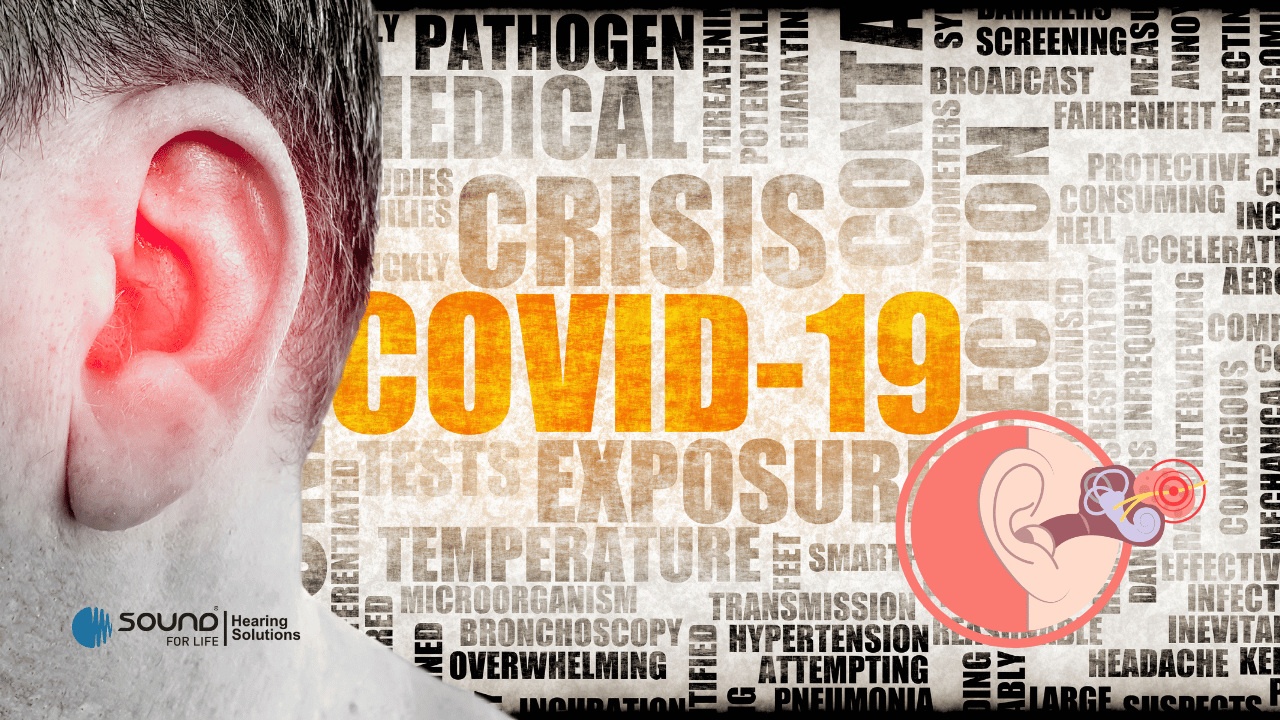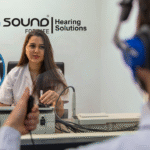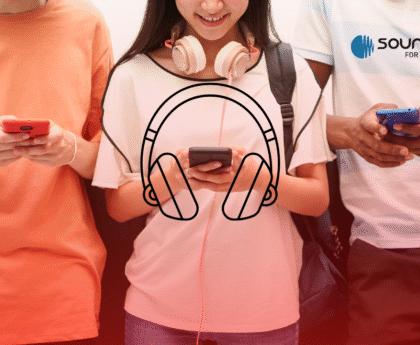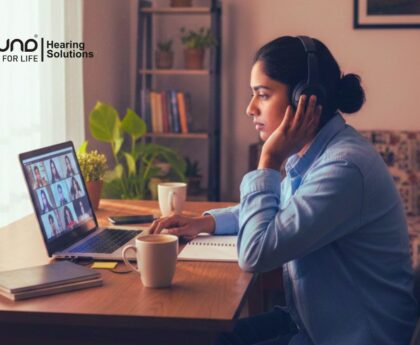The COVID-19 pandemic has changed our lives in ways we never thought possible. Most people think of COVID-19 as a respiratory illness, but doctors and researchers have found that it can also affect other parts of the body, like your ears.
More people in India are saying they have problems like sudden hearing loss, ringing in the ears (tinnitus), or dizziness after getting better from COVID-19 in 2025. If you or someone you know has had changes in hearing after an infection, you’re not the only one.
This blog will show you how to:
- Why COVID-19 might make it hard to hear
- Signs that you may have hearing problems after COVID
- When to go to an audiologist
- Treatments that are available in India
- How to keep your hearing safe
Our goal at SFL Hearing Solutions is to help you hear better and live better by giving you the most up-to-date information and expert care.
Can COVID-19 really change how you hear?
Yes, it can. Several studies done in the last few years have found a link between COVID-19 and problems with hearing. Doctors think there are a few reasons why this happens:
COVID-19 can cause inflammation in the inner ear, which can hurt the tiny hair cells that help you hear.
Less blood flow: The virus may make it harder for blood to get to the cochlea, the organ that helps you hear, which could cause sudden hearing loss.
Response from the immune system: The body’s defence system can sometimes hurt healthy cells in the ear by mistake.
Side effects of drugs: Some drugs that are used to treat COVID-19 may also affect hearing in very rare cases.
Not everyone who gets COVID-19 will lose their hearing, but the risk is real, especially for people who already have health problems like diabetes, high blood pressure, or previous ear problems.
How often do people lose their hearing after COVID-19 in 2025?
Research is still going on, but here is what clinics and studies are saying:
- About 5% to 15% of people who survive COVID-19 have some kind of hearing problem.
- Some young adults are even reporting sudden sensorineural hearing loss (SSNHL).
- Ringing in the ears, or tinnitus, is one of the most common long-lasting symptoms.
- After COVID, problems with balance and dizziness (vertigo) are also linked to ear problems.
Doctors and audiologists in India are seeing more patients with post-COVID ear problems. Millions of people in India have fought through multiple waves of COVID-19.
Things to Look Out For If You Might Have Hearing Problems After COVID-19
People don’t always notice changes in their hearing right away. Here are some things to look out for:
- Having trouble hearing people talk, especially in loud places
- Having to turn up the volume on the TV or phone more than usual
- Sounds like ringing, buzzing, or hissing in the ear (tinnitus)
- It feels like one ear is “blocked” or less sensitive.
- Feeling dizzy or having trouble keeping your balance
- Hearing loss that comes on suddenly in one or both ears
It’s important not to ignore any of these signs after you’ve recovered from COVID-19, even if it’s weeks or months later. Getting a diagnosis early can have a big effect on how well treatment works.
When is it time to see an audiologist?
A lot of people in India wait too long to get help for hearing loss because they think it will get better on its own. But hearing problems that happen after COVID need to be looked at by a doctor as soon as possible.
- If your hearing changed suddenly after COVID-19, you should see an audiologist.
- You always hear ringing or buzzing in your ears.
- You often feel dizzy or like you’re going to fall over.
- You have a hard time following conversations, even when there isn’t much noise.
- Your family says you keep the TV too loud.
Our skilled audiologists at SFL Hearing Solutions use cutting-edge tests to check your hearing and find out if your problem is temporary or permanent.
How Doctors Check Hearing After Covid: Diagnosis
If you go to a hearing clinic, this is what usually happens:
Discussion of your case history:
- The audiologist will ask you about your COVID history, medications, and symptoms.
- Otoscopy is a quick look inside your ear canal to see if there is wax or an infection.
- Pure-tone audiometry tests how well you can hear different sounds and pitches.
- Speech audiometry tests how well you can understand words.
- Tympanometry checks how well the middle ear works.
- Otoacoustic emissions (OAE) check to see if the hair cells in the inner ear are working right.
- These tests don’t hurt and help you get a full picture of how well you can hear.
How to Treat Hearing Loss After COVID
The type and severity of hearing loss determine the treatment. Some common ways to do this are:
1. Treatment by a doctor
Corticosteroids (oral or injected) are often used to treat sudden sensorineural hearing loss.
Antiviral or anti-inflammatory drugs may be given in some cases.
2. Hearing aids
Modern digital hearing aids can make a big difference if the hearing loss is permanent.
Hearing aids today are small, discreet, and have advanced features like Bluetooth connectivity.
3. Taking care of tinnitus
Sound therapy, relaxation techniques, and counselling can help lessen the effects of tinnitus.
Some hearing aids have features that help with tinnitus built right in.
4. Therapy for balance
Vestibular rehabilitation exercises can help if you feel dizzy.
5. Implants for the cochlea
Cochlear implants may be an option for people who have severe or profound hearing loss.
We make personalised treatment plans for each patient at SFL Hearing Solutions.
How to Live With Hearing Loss After COVID-19
Don’t give up hope if your hearing doesn’t come back all the way after COVID. With the right help, a lot of people still live full, active lives. Here are some things you can do:
- To stay connected, use hearing aids or other helpful devices.
- Use good communication skills: face the speaker, ask people to speak clearly, and turn down the background noise.
- Join a support group; talking to other people can help you feel less alone.
- Keep up with regular checkups because your hearing health can change over time.
Can You Stop Hearing Loss After COVID?
You can’t always stop it, but you can lower your risk:
- Don’t blast music or wear headphones to protect your ears from loud sounds.
- Take care of your diabetes, high blood pressure, and cholesterol to stay healthy overall.
- Do not take antibiotics or steroids on your own without first talking to a doctor.
- If you get COVID-19, keep a close eye on your hearing while you recover and after.
- If you have COVID, get your hearing checked once a year.
The Indian Point of View: Why Awareness is Important in 2025
Compared to other countries, people in India still don’t know much about hearing health. A lot of people don’t pay attention to early signs of hearing loss because they think it’s just part of getting older. But in the world after COVID, young adults and even teens are also saying they have hearing problems.
- Spreading the word is important because it can help prevent permanent damage if treatment starts early.
- Hearing loss makes it hard to work, study, and get along with others.
- Hearing loss that isn’t treated can cause anxiety, depression, and even trouble remembering things.
That’s why clinics like SFL Hearing Solutions are working to teach people and make sure that everyone in India can get affordable, high-quality hearing care.
Why should you pick SFL Hearing Solutions?
SFL Hearing Solutions can help if you are worried about having hearing problems after COVID-19. This is what makes us different:
- Audiologists with years of experience and expertise
- Advanced diagnostic tools for getting the right answers
- A lot of hearing aids from well-known brands around the world
- Care plans that are tailored to your lifestyle and budget
- Counselling and help for patients and their families
We make the process easy and stress-free, whether you need a hearing test, a hearing aid fitting, or long-term help.
Important Points:
- COVID-19 can hurt your hearing as well as your lungs.
- Don’t ignore symptoms like sudden hearing loss, ringing in the ears, or dizziness.
- Early diagnosis and treatment make a big difference in how well things turn out.
- Hearing aids and new treatments are great ways to deal with permanent loss.
- If you’ve had COVID-19 in the past, you need to get check-ups on a regular basis.
Last Thoughts
Hearing is a very important sense, and losing it, even a little bit, can affect every part of life. Don’t wait for your hearing to get worse if you’ve noticed changes in it after COVID-19.
We at SFL Hearing Solutions are dedicated to helping you keep your hearing healthy and improve it.
Make an appointment with one of our audiologists today and start on the path to better hearing.
Because life is meant to be heard, loud and clear.





